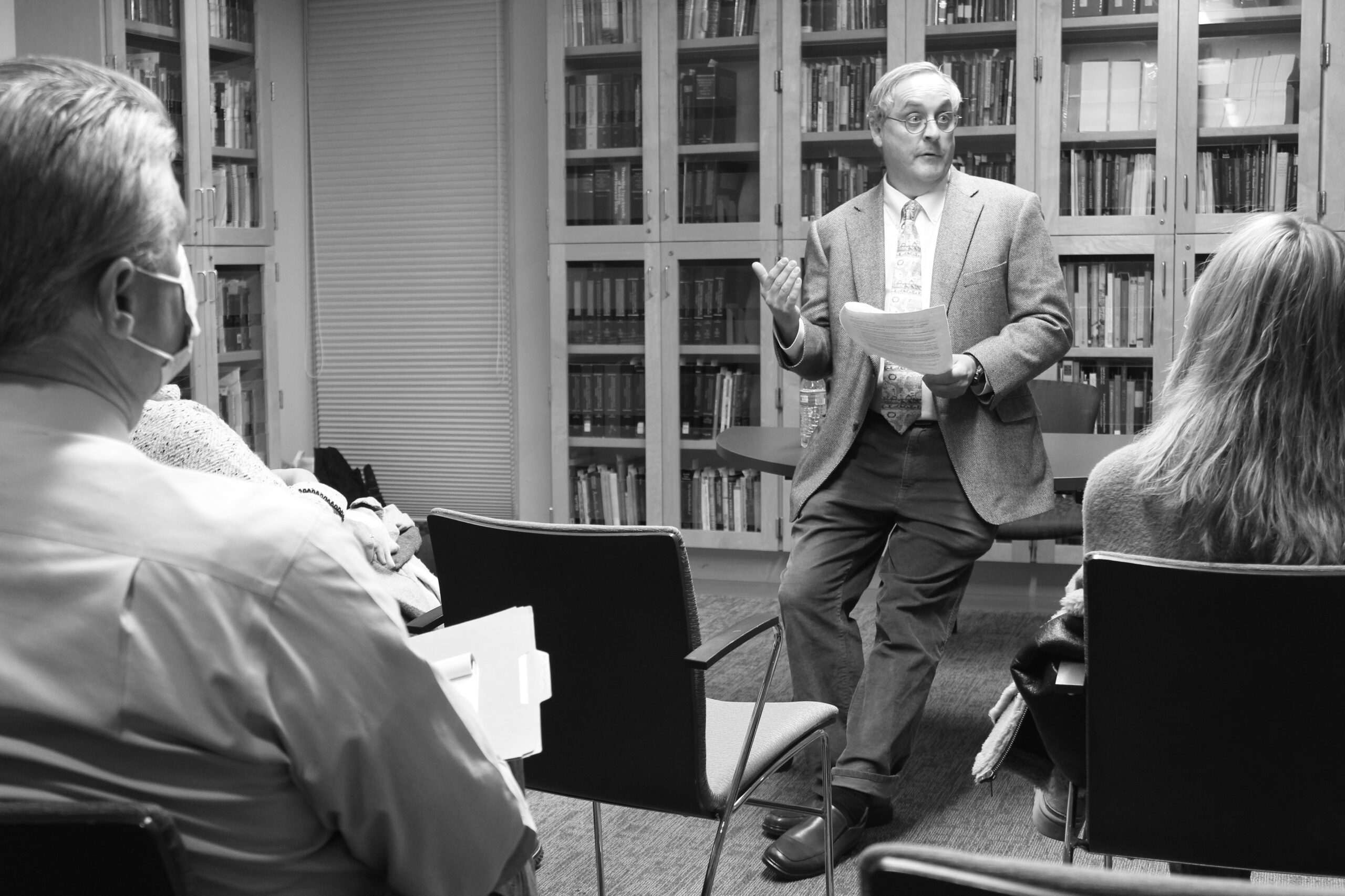Laurence launches book on politics of public broadcasting
February 3, 2023
 Carolina Weatherall
Carolina WeatherallYesterday, Associate Professor of Government Henry Laurence launched his book, “The Politics of Public Broadcasting in Britain and Japan: The BBC and NHK Compared.” At an event in Hawthorne-Longfellow Library’s Nixon Lounge, Laurence described the structures of the British Broadcasting Company (BBC) and Nippon Hoso Kyokai (NHK), compared their roles in their respective countries and highlighted key moments in their histories.
At the start of his talk, Laurence read the audience excerpts of the two organizations’ mission statements which are nearly identical. They both include providing high-quality, impartial news coverage, educating the citizens of their respective countries and improving international knowledge and understanding of their nations’ cultures.
“They are quite extraordinary, in the sort of ambition of what they set out to do as organizations,” Laurence said.
He also outlined key similarities between the two media organizations, including that they are both publicly-funded, required to serve the common good and editorially-independent of the governments in their respective countries.
However, how the BBC and NHK have historically interpreted editorial independence has varied, Laurence noted.
“The BBC is an organization likely to question the government or those in power; it uses its independence from sponsorship to ask hard questions of corporations and governments to do serious investigative journalism, and generally makes a nuisance of itself to afflict the comfortable in power. [The] NHK sees its role as to faithfully convey to the public the government’s messages,” he said.
He emphasized that the difference in interpretations of editorial independence between the two media organizations is not a function of cultural differences, however, and that Japanese journalists are just as investigative.
“This is not some cultural thing about the difference between Britain and Japan,” Laurence said. “It’s about managers, journalists and creators at loggerheads with each other. When I interview Japanese journalists, they chafe at the sorts of restrictions that their managers put on them.”
In an interview with the Orient, Laurence explained that he became curious about how the two organizations remained in public hands. In a previous research project, he found that the British and Japanese governments privatized many other industries during the 1980s and 1990s.
The two organizations have remained in public hands for different reasons, with former Prime Minister Margaret Thatcher’s efforts to privatize the BBC failing due to its success and popularity as a public organization.
“Thatcher hated the BBC, … but she loved [its programs] at the same time, and she knew the British public did too, as did most of her cabinet and the neoliberal committee she set up to privatize it, which concluded by saying it was doing a much better job than American [private news organizations],” he said during the talk.
The NHK survived less due to public opinion and more on the basis of its close relationship with the near perpetually-ruling Liberal Democratic Party (LDP).
“[The] NHK discovered that [it] could get by by not rocking the boat. It was fortunate for and contributed to relatively long conservative rule in Japan in the form of the LDP and that grew into a long-standing symbiotic relationship with the LDP, not with blatantly Fox News-style positive coverage, but with non-confrontational questions to maintain the status quo.”
In response to a question asked by Humanities Media Librarian Carmen Greenlee, Laurence gave an example of one controversy the BBC and NHK have each faced, and the differences in how they responded. The example he gave about the BBC surrounded television personality Jimmy Savile, who was found to have sexually abused hundreds of people while working for the BBC. While it initially canceled a documentary exposing Savile’s actions, subsequent BBC investigations into his behavior have spurred new initiatives into female representation and gender-pay equality at the media organization.
In contrast, Laurence explained, the NHK pulled a documentary about sexual slavery during World War II after it faced opposition from the LDP and acceded to the government’s demands to not discuss the controversy in the future.
Laurence left his audience with a message about supporting organizations that advance the common good.
“Minority communities, marginalized communities, poor communities, communities that are not otherwise attractive demographics to advertisers and [those that] can’t afford subscriptions have been better served by public media than by the for-profit model,” he said. “Support whatever institutions are around which embody the values that you think are right—democratic values and values of inclusivity, honesty or fairness.… If you work in an institution that is committed to fighting for the common good, preserve that, fight for it.”

Comments
Before submitting a comment, please review our comment policy. Some key points from the policy: